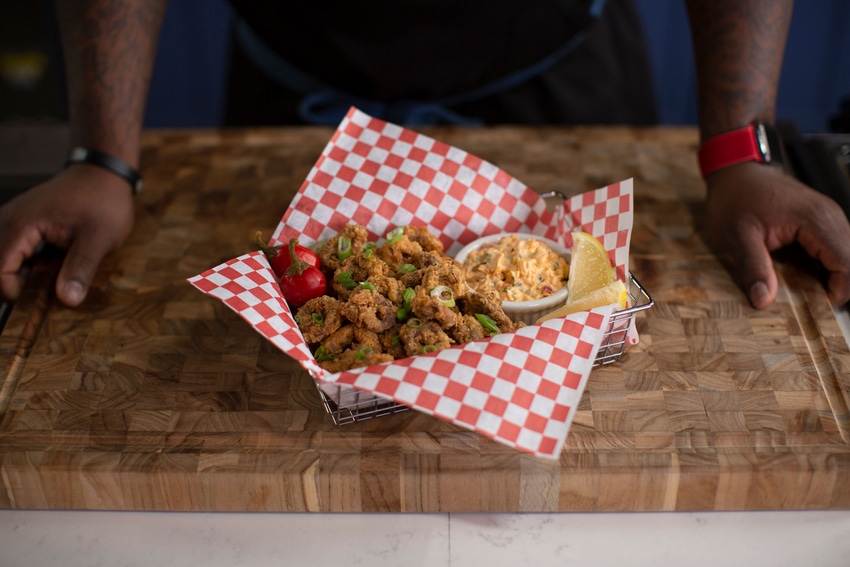Beef Checkoff programs shift to meet consumer needs
Beef industry stakeholders leveraging resources to help consumers cook during pandemic.

Beef promotion programs being managed by the National Cattlemen’s Beef Assn. (NCBA) as a contractor to the Beef Checkoff have shifted and grown in response to the worldwide coronavirus pandemic. These efforts reflect a population of consumers who are concerned for their day-to-day health and the availability of delicious, safe and wholesome food products, like beef.
“It was only two months ago that Beef Checkoff committees got together in San Antonio [Texas] at the Cattle Industry Convention to work collectively to develop plans to improve beef demand,” said Buck Wehrbein, a feedlot manager from Nebraska and chairman of the Federation of State Beef Councils. “In a few short weeks, our entire world and the way we engage with each other and our communities have changed, and our response through the Beef Checkoff has had to change with it.”
Wehrbein noted that many events and conferences the Beef Checkoff played a role in have been canceled, and some research projects have been paused. In addition, the current issues called for the program to shift messages to meet the needs of consumers immediately.
“Our market research and market intelligence staff members are keeping a close eye on what is going on in retail and foodservice channels as well as how consumers are responding and what they need from us,” he said.
Wehrbein relayed that the supply chain is leveling out, and beef is becoming more available in retail meat cases. According to market research company IRI, meat has been the leading sales driver for the perimeter of the retail store, with year-over-year sales up more than 90% for the week ending March 22. While those numbers have moderated somewhat, they are still considerably higher than they were for the same period in 2019.
Those figures can seem frustrating to producers who feel like they have not received a fair share, Wehrbein noted, but added that they also help demonstrate that the checkoff is doing its job of strengthening beef demand.
With three out of four consumers under stay-at-home orders, they are cooking more meals for more people and more often. NCBA staff, along with staffs of state beef councils across the country, are leveraging their extensive library of content, including advertisements, recipes, cooking videos and educational materials about beef nutrition, to help consumers while they are home during the pandemic.
Tips on beef preparation and recipes are being provided to consumers through Beef Checkoff-funded content on the Beef. It’s What’s For Dinner website, including recipe collections, cooking lessons and beef safety information. Meanwhile, both national and state programs have shifted advertising dollars to deliver this content to consumers and provide it on social media platforms, too. In addition, the checkoff is reminding consumers that Chuck Knows Beef, the digital assistant based on artificial intelligence, is available to help them with their beef questions.
Recipes and resources are also being provided to food influencers, supply chain partners and the news media to support their efforts to educate consumers about food preparation and healthy eating. NCBA, in its checkoff role, is also keeping in close contact with supply chain partners to provide support as they adjust to the current consumer and business environments.
Wehrbein encourages interested producers to follow Beef. It’s What’s For Dinner on social media platforms, including Facebook, Instagram and Twitter, to see how checkoff dollars are helping consumers feel confident in choosing and preparing beef while assuring consumers that the beef industry is committed to providing safe, healthy, wholesome beef to the food supply.
Beef in the “substitute” seat
To reach consumers, a new campaign was released April 1 to highlight the versatility of beef. NCBA, as a checkoff contractor, partnered with three nationally recognized chefs, who found creative ways to substitute beef for more commonly used proteins in one of their favorite dishes. The resulting recipes include Peking chuck, Korean fried beef and "cowlamari."
This fully integrated campaign includes paid advertising, social media, media relations, influencer engagement and retail outreach. It’s projected that the initial campaign flight will secure 31 million impressions through advertising alone. A special webpage that includes the chef videos and recipes provides an overview of the campaign, and the recipes, which use a play on words, complement the Beef Checkoff’s “Nicely Done Beef” campaign.
Results show that the campaign is already paying dividends. The recipes were shared with major news outlets, and the chefs, who have thousands of followers, are also pushing out the recipes on their own social media platforms. Since the new videos launched, there have been more than 1.2 million video views and nearly 1.5 million social engagements with the content. The team also activated Masters of Beef Advocacy graduates, asking them to share their own “beef substitute” recipes. Cooking with the Cowboy making a Steak Pot Pie and Girl Carnivore serving up Beef Parmesan were two results.
NCBA also conducted extensive engagement with national consumer media reporters.
Finally, Wehrbein pointed to a summer grilling promotion that is planned to begin Memorial Day and run through Labor Day that will celebrate beef as the center of grilling activities. The “United We Steak” campaign will feature every state in the country and highlight the favorite steak of each. The campaign is working in close partnership with state beef councils to develop the state features, including individual webpages highlighting that state’s unique components. It’s hoped that the timing of the campaign will leverage consumers coming together after the extended stay-at-home orders.
“Federation board members, who represent their state beef council on the board, can take pride in the work they’ve done to make these national programs possible, but they can also be proud of the work of their own state organizations,” Wehrbein said. “There are innovative efforts to reach consumers and influencers being conducted on many fronts, including through online platforms.”
About the Author(s)
You May Also Like




.png?width=300&auto=webp&quality=80&disable=upscale)
